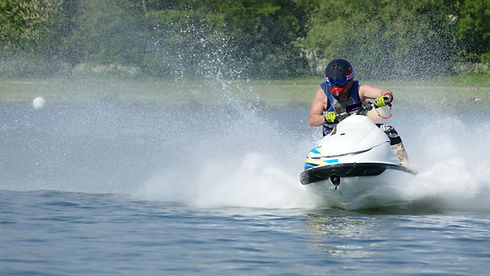
Boating Accidents
You Are Here: Practice Areas > Personal Injury > Boating Accidents
Hurt on the Water?
With more people out on the water than ever before, all types of boating accidents are bound to occur. A boating accident catastrophic injury or death can occur if the watercraft operator does not have the proper training. If boating injuries or death are caused by the negligence of the boat operator, you may be protected from their reckless actions.
A boating accident lawyer can provide legal representation for different types of injuries that can occur in a boating accident, such as drowning, near drowning, burns, spinal cord injuries, carbon monoxide poisoning, electrocution, lacerations and bruises.
Avoid a boating accident. In the state of Pennsylvania it is illegal to:
-
Operate a watercraft in a reckless, negligent, or dangerous manner. Boats must be operated at a rate of speed that does not endanger the life or property of any person.
-
Operate a boat at greater than slow, no-wake speed within 100 feet of the shoreline, docks, launch ramps, swimmers, or downed skiers, persons wading in the water, anchored, moored, or drifting boats, and floats. Slow, no-wake speed is the slowest possible speed of a motorboat required to maintain maneuverability, so that the wake or wash created by the motorboat on the surface is minimal. The slow, no-wake zone for wake surfing activity is 200 feet.
-
Operate a motorboat less than 20 feet in length at greater than slow no-wake while a person is standing on or in the boat.
-
Operate a motorboat at greater than slow, no-wake speed with a person riding outside of the passenger carrying area or while a person is riding on the bow decking, gunwales, transom, or motor covers.
-
Operate a pontoon boat at any speed while a person is riding outside the passenger carrying area.
-
Cause a boat to become airborne or to leave the water completely while crossing another boat’s wake when within 100 feet of the boat creating the wake.
-
Weave through congested traffic.
-
Operate faster than slow, no-wake when within 100 feet to the rear or 50 feet to the side of another boat that is underway, unless in a narrow channel.
-
Operate within 100 feet of anyone towed behind another boat.
-
Operate a motorboat with anyone sitting, riding, or hanging on a swim platform or swim ladder attached to the boat. Many waterways in Pennsylvania have special regulations such as electric only or horsepower restrictions.
